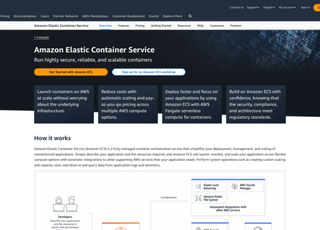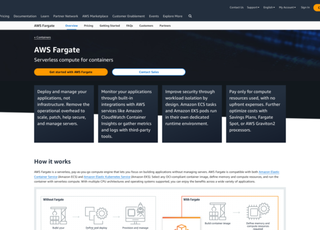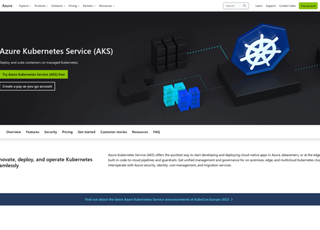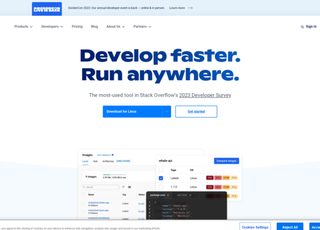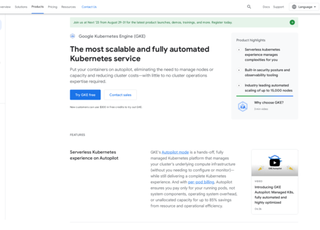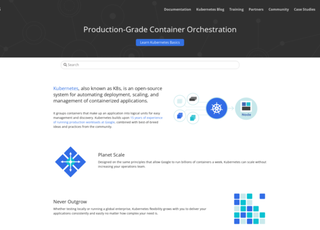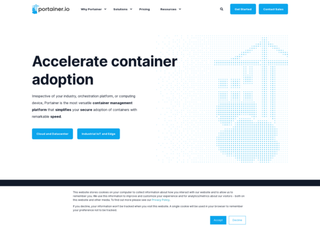OpenShift Container Platform
https://www.redhat.com/en/technologies/cloud-computing/openshift/container-platformOpenShift Container Platform
OpenShift Container Platform, developed by Red Hat, is a powerful and versatile container application platform based on Kubernetes, a popular container orchestration system. It provides an integrated development and operations environment for deploying and managing containerized applications.
Key components and features of OpenShift Container Platform
Kubernetes at its Core
OpenShift is built on top of Kubernetes, which means it inherits Kubernetes' abilities to automate the deployment, scaling, and management of containerized applications. This makes it a robust platform for managing complex container ecosystems.
Developer and Operations Friendly
OpenShift offers a user-friendly interface that simplifies many of the complexities involved in managing Kubernetes. It's designed to be accessible for developers who might not be Kubernetes experts, allowing them to focus on writing code rather than managing infrastructure.
Container Runtime
It supports Docker and other container runtime environments, providing flexibility in how containers are created and managed.
Integrated Development Tools
OpenShift includes a range of integrated development tools and services, such as source code management, build automation, and deployment strategies, to streamline the development process.
Security
Security is a significant focus in OpenShift. It enhances Kubernetes' native security features with additional layers, including role-based access control (RBAC), Security-Enhanced Linux (SELinux)-enforced isolation, and secure container registry.
Extensibility and Scalability
OpenShift is highly extensible, allowing integration with various plugins and extensions. It can also scale up or down based on the application's needs, making it suitable for both small-scale applications and large enterprise solutions.
DevOps and CI/CD
It supports continuous integration and continuous deployment (CI/CD) practices, enabling automated testing and deployment of applications. This helps in reducing the time to market and improving the software development lifecycle.
Hybrid and Multi-Cloud Support
OpenShift can be deployed in a variety of environments, including on-premises, in the cloud (like AWS, Azure, or Google Cloud), and in a hybrid setup. This makes it an adaptable platform that fits various organizational needs.
Service Mesh and Microservices
OpenShift supports service mesh architecture, making it easier to manage microservices-based applications. It helps in monitoring, securing, and connecting microservices efficiently.
Monitoring and Logging
The platform provides comprehensive monitoring and logging capabilities, enabling teams to keep track of their applications' performance and troubleshoot issues effectively.
Additional aspects and benefits of OpenShift Container Platform
Self-Service Provisioning
OpenShift enables developers to quickly provision resources for their applications without waiting for IT operations. This self-service capability significantly speeds up development cycles and reduces dependencies on IT staff.
Automated Scaling
One of the standout features of OpenShift is its ability to automatically scale applications based on demand. This auto-scaling feature ensures that applications have the resources they need when they're needed, improving efficiency and performance.
Rich Catalog of Services
OpenShift includes a rich catalog of pre-built services and components, like databases, message queues, and other middleware, which can be easily integrated into applications. This reduces the time and effort required to set up and configure these components from scratch.
Enterprise-Grade Support
As a Red Hat product, OpenShift comes with enterprise-grade support. This includes access to Red Hat's extensive documentation, expert support, and a vast community of users and contributors. This support is crucial for businesses that rely on their container infrastructure for critical operations.
Compliance and Standards
OpenShift adheres to various compliance and regulatory standards, making it suitable for use in industries that have strict regulatory requirements, such as finance and healthcare.
Customization and Flexibility
OpenShift allows extensive customization to meet specific business needs. This includes custom workflows, integrations with existing systems, and the ability to develop and use custom plugins.
Streamlined Application Lifecycle Management
OpenShift streamlines the entire application lifecycle, from development to deployment and maintenance. This lifecycle management includes version control, testing, building, and rolling out updates, all within a unified environment.
Network Management
It offers robust network management capabilities, including network policies for controlling the flow of traffic and ensuring secure communication between different parts of an application.
Storage and Data Management
OpenShift provides dynamic storage provisioning, allowing applications to access storage resources as needed. It supports a variety of storage solutions, both on-premises and cloud-based, ensuring flexible and scalable data storage options.
Community and Ecosystem
OpenShift benefits from a strong community and ecosystem. This includes a wide range of third-party tools, applications, and integrations that enhance its functionality and usability. The community also contributes to the continuous improvement and evolution of the platform.
OpenShift Container Platform is a complete solution for developing, deploying, and managing containerized applications. It combines the power of Kubernetes with additional features and tools to enhance productivity, security, and scalability, making it a popular choice for organizations looking to embrace containerization and modern application deployment practices.





















